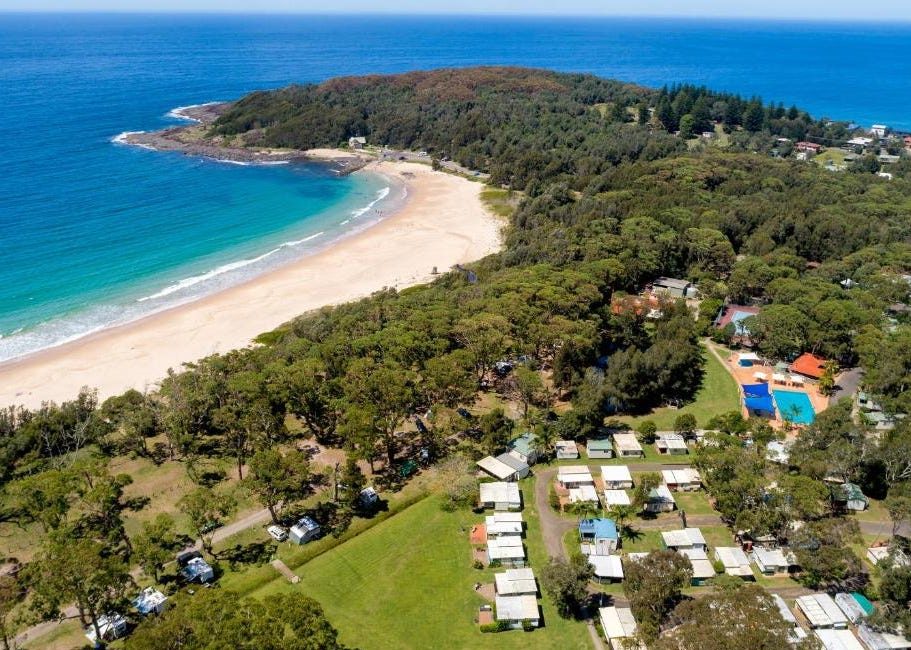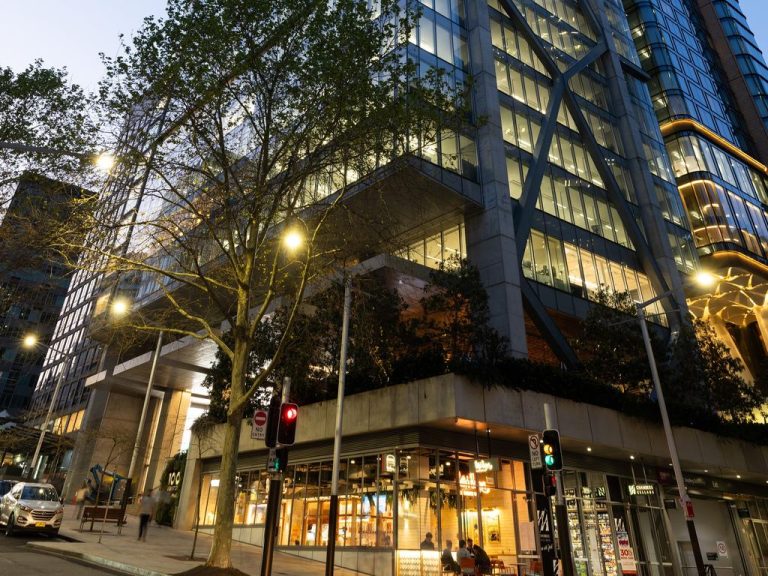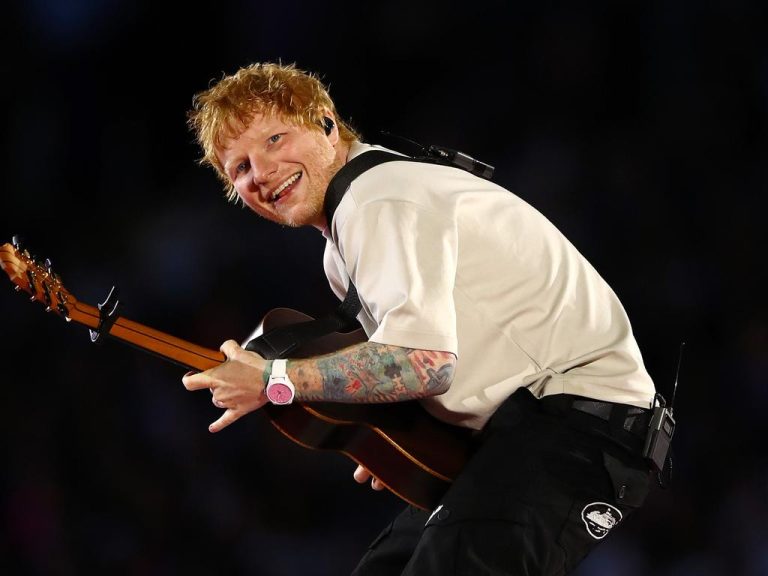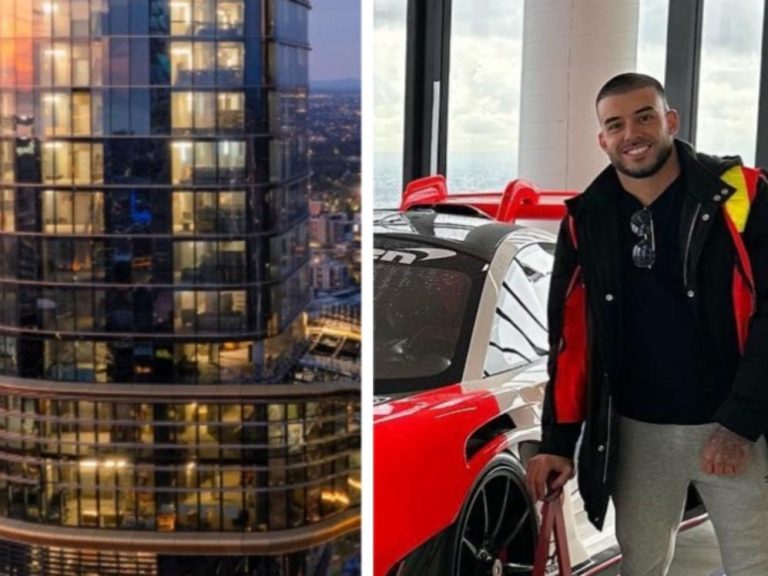Domestic travel revival bodes well for NSW coastal holiday park

A NSW holiday park is benefitting from a resurgence in domestic travel with strong corporate competition for the rare crown land site.
The price for Kioloa Beach Holiday Park, a 9.2ha site just 45km north of Batemans Bay, remains undisclosed but industry sources suggest it could sell for around $10 million. Corporate buyers are showing strong interest in the property.
Buyers are eying the park’s location on the popular NSW south coast, which welcomed 687,000 caravan travellers and campers in 2021, according to Tourism Research Australia.
Of these visitors, 50% originated from Sydney, and this proximity to Sydney as well as Canberra along with direct access to the beach adds to the holiday park’s list of attractive qualities.
One of the top-performing parks in the area, it generated around $2.5 million in gross revenue in the 2020-2021 financial year with 40% of this revenue coming from long-term visitors.
It has 386 sites, including 34 tourist cabins, along with a pool, tennis court, playground and office plus a manager’s residence is available to let.
Meanwhile, buyers can capitalise further on their investment in the long-term with the property going to market as a rare 34-year leasehold going concern.
Big price for holiday park attracts investors
Sydney-based development company, the Roche Group, bought the property in 2009 for $5.1 million, according to PropTrack data, and also owns a range of residential, tourism and agricultural sites, all of them – bar Kioloa Beach Holiday Park – north of Sydney.

A resort-style pool, tennis court multiple barbecue areas and a playground add to the holiday pak’s direct beach access. Picture: realcommercial.com.au/for-sale
HTL Property’s national accommodation director, Andrew Jackson, who is marketing the property, said the property’s southern location was why Roche Group was now selling it despite the fact the company only recently signed a new lease.
“Everything that the Roche Group have is north [of Sydney] and this is the only holiday park they own and it’s south coast and they’re in Sydney,” Mr Jackson explained.
Mr Jackson said the park’s size and sale price virtually ensured it would sell to a passive investor, similar to the Roche Group.
“When you get to this sort of price point, it’s not a Mum and Dad asset anymore but rather, an investment-grade one,” he said.
“So the buyers will be high-net-worth [individuals] or one of the corporates who play in this kind of space.”
Mr Jackson said the holiday park had received “very strong, quite broad” interest from private companies and corporates who are already dominant in the sector.
“Interest has primarily been domestic but we’ve seen a broad cross section of corporate investors, listed and unlisted funds, and REITs, plus private investors and investment syndicates,” Mr Jackson explained.
“With domestic tourism resurgence and the corporatisation of the holiday park sector, [these properties] are experiencing unheralded yield compression and we don’t expect prevailing conditions to subside any time soon.”
The property’s rare crown land factor has raised some eyebrows with the buyer purchasing a long-term commercial business interest, or lease, and not the underlying land which essentially belongs to the government.
However, Mr Jackson explained that while crown land leases were unusual, the crown owned plenty of land particularly in sensitive places such as beachfront areas, including holiday parks.
“Buyers still have the ability to improve this property’s land or the facilities which with such a long lease, they will probably do,” he said.
“It’s a long time to get a return on your investment.”
Domestic travel resurgence creates strong buyer advantage
Mr Jackson said any upgrades such as building new cabins would also take advantage of, and capitalise on, the strong resurgence in Australia’s domestic travel industry after two years of COVID border closures and lockdowns.
“Now that we can all get out and about post-pandemic, everybody’s taking more holidays – but we’re still probably reluctant to jump overseas at this stage,” Mr Jackson said.

The 9.2ha property includes 386 powered and upowered sites including three large villa retreats. Picture: realcommercial.com.au/for-sale
Sean Jenner, the CEO of BIG4 Holiday Parks – which owns Tasman Holiday Park-Racecourse Beach at Bawley Point, 6km north of Kioloa Beach – agreed that tourist numbers were growing as was the popularity of holiday parks.
“With domestic and international borders opening up and events starting to increase, people are quickly gaining confidence in heading out and about and travelling again,” he said.
Caravan Industry Association of Australia research and insights general manager, Peter Clay, said tourist numbers were gradually returning to normal in NSW’s south coast, particularly after Easter.
“But in times of crisis, Australians revert to comfort and safety, and particularly with what has happened over the last two years, we are seeing a strong demand for people wanting to connect with friends, family, community, and nature.
“Caravan parks provide this opportunity better than any other form of accommodation,” he said.

There are 34 cabins of all shapes and sizes at the holiday park. Picture: ralcommercial.com.au/for-sale
Mr Clay said properties like Kioloa Beach Holiday Park were generally very profitable with many similar corporately-owned properties in the region.
“According to our data, holiday parks in the south coast tourism region make about $311 in RevPAR [revenue per available room] and $265 in ADR [average daily room rates] in the peak season of January,” Mr Clay explained.
“The average occupancy rate in this season is 85%.”
Mr Clay added that the key challenges for Kioloa Beach Holiday Park’s new owners would be strong local competition along with cool winter months.
“This is a highly competitive tourism region and requires investment and a strong competitive advantage,” he explained.
However, buyers will definitely benefit from the property’s attractive location, Mr Clay said.
“The south coast of NSW is very much about destination parks and attracts families and weekenders, with its strength being its proximity to Sydney and Canberra,” he explained.
“This proximity to major cities is why NSW’s coastal market will generally always do well.”
Kioloa Beach Holiday Park is for sale via expressions of interest, which close Thursday, May 19 at 4pm.







